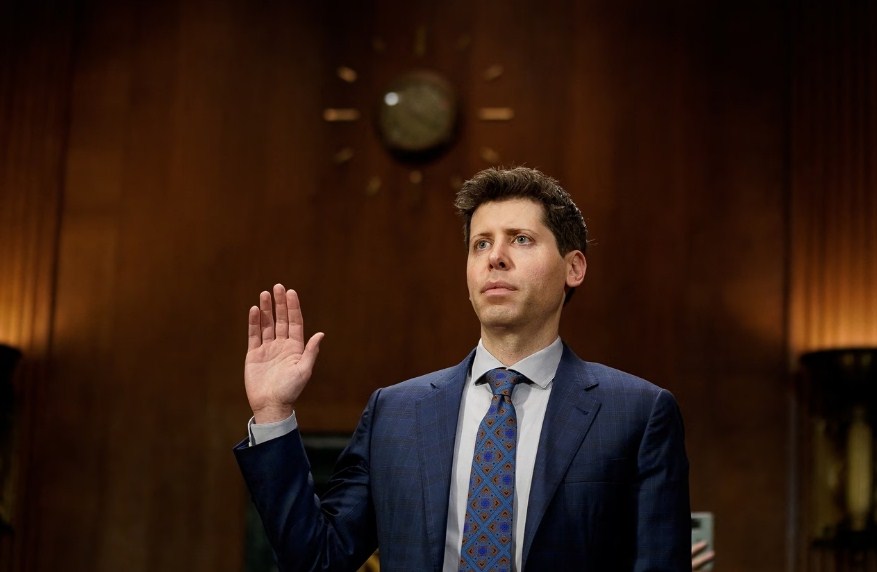In a rare and exclusive event, some of the most influential figures in the tech industry met with senators on Wednesday to discuss the future of artificial intelligence (AI) and how to regulate it. The closed-door forum, organized by Senate Majority Leader Chuck Schumer and Senator Mike Rounds, featured Meta’s Mark Zuckerberg, Tesla’s Elon Musk, former Microsoft CEO Bill Gates, and other prominent tech leaders and advocates.
The Need for Bipartisan Legislation on AI
Schumer and Rounds said they invited the tech titans to give senators advice on how to craft bipartisan legislation that would both encourage the rapid development of AI and also mitigate its biggest risks. Schumer said he hoped to achieve “a little bit of some broad consensus” among the diverse and sometimes conflicting views of the participants.
The senators said they wanted to avoid repeating the mistakes made with social media, which was largely left unregulated until it became a source of misinformation, polarization, and privacy violations. They also said they wanted to get ahead of the fast-moving AI sector by ensuring that it continues to develop “on the positive side” while also taking care of potential issues surrounding data transparency and privacy.
“AI is not going away, and it can do some really good things or it can be a real challenge,” Rounds said.
Schumer said regulation of AI would be “one of the most difficult issues we can ever take on,” because it is technically complicated, constantly changing, and has a wide and broad effect across the world.
The Views of the Tech Titans on AI
The tech titans who attended the forum had different perspectives and opinions on AI and how to regulate it. Some of them have been vocal advocates or critics of AI in the past, while others have been more reserved or nuanced.
Zuckerberg, whose company Meta (formerly Facebook) has been investing heavily in AI and virtual reality, said he was optimistic about the potential of AI to improve people’s lives and solve global challenges. He also said he supported some form of regulation that would ensure ethical and responsible use of AI, but cautioned against over-regulation that would stifle innovation and competitiveness.
Musk, who has been warning about the existential threat of AI for years, said he was concerned about the possibility of AI surpassing human intelligence and becoming uncontrollable. He also said he favored a global ban on autonomous weapons and a moratorium on advanced AI research until there is a clear understanding of its implications and safeguards.
Gates, who has been a philanthropist and an advocate for global health and development, said he was hopeful that AI could help address some of the world’s most pressing problems, such as poverty, disease, and climate change. He also said he supported a balanced approach to regulation that would foster collaboration and trust among stakeholders, while also ensuring accountability and oversight.
Other participants included Sundar Pichai, the CEO of Google; Ginni Rometty, the former CEO of IBM; Fei-Fei Li, the co-director of Stanford University’s Human-Centered AI Institute; Eric Horvitz, the chief scientific officer of Microsoft; Dario Gil, the director of IBM Research; Oren Etzioni, the CEO of Allen Institute for AI;
Francesca Rossi, the global leader for AI ethics at IBM; Yoshua Bengio, a co-recipient of the 2018 Turing Award for his work on deep learning; Stuart Russell, a professor of computer science at UC Berkeley; Kate Crawford, a co-founder of the AI Now Institute at New York University; Meredith Whittaker, a co-founder of the AI Now Institute at New York University; Joy Buolamwini, a founder of the Algorithmic Justice League; Timnit Gebru, a co-founder of Black in AI; and Terah Lyons, the executive director of Partnership on AI.
The Next Steps for Congress on AI
The forum was not open to the public or the press, and no official transcript or summary was released. However, Schumer and Rounds said they were pleased with the outcome and learned a lot from the tech titans. They also said they planned to use their insights and suggestions to draft bipartisan legislation on AI within the next year.
The senators said they hoped to address several aspects of AI regulation in their bill, such as research funding, education and workforce development, data governance, ethical standards, liability rules, national security implications, and international cooperation.
They also said they hoped to involve other senators from both parties in their efforts, as well as other stakeholders from academia, civil society, and industry.
“We don’t want to do what we did with social media, which is let the techies figure it out, and we’ll fix it later,” Warner said. “We want to be proactive and responsible.”

